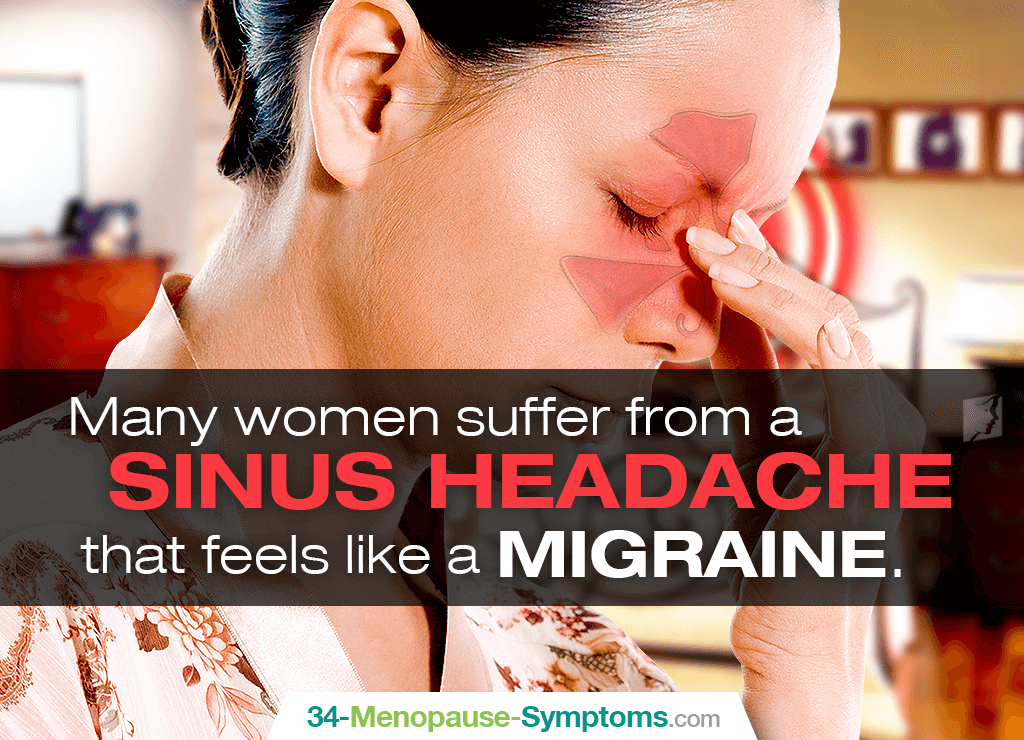Migraines are excruciating conditions that can leave women bedridden and hating life. When combined with pressure and pain in the nasal passages, you end up with a sinus migraine. Continue reading to learn all you need to know about sinus migraines, and get back up and going to a more concentrated you today.
What is a Sinus Migraine?
Technically, there is no medical condition known as a sinus migraine. Signs and symptoms of a sinus headache and migraine are easily confused since they overlap.
Nonetheless, many women suffer from a sinus headache - which can involve a fever, thick nasal secretions, or pain and pressure in the face and sinuses - that feels like a migraine, a moderate to severe headache that can make a woman nauseated as well as sensitive to lights and sounds.
As such, sinus headaches that feel like migraines will be referred to as sinus migraines from here on.
Why Does a Sinus Migraine Happen?
Although the exact cause of migraines is not fully understood, hormones are believed be a major cause of headaches in menopausal women, and in all women in general.
Hormonal causes
Hormonal changes can trigger sinus headaches, evoking nasal symptoms of pressure and pain in the face and sinuses. Specifically, fluctuations of estrogen and changes in the estrogen-progesterone ratio can prompt chronic sinus migraines to occur. These migraines most often come about after ovulation and at the beginning of menses.
Other causes
Genes are also believed to have a link to sinus migraines. In general, those who suffer from migraines may have atypical genes that regulate the function of specific brain cells responsible for triggering inflammation that causes blood vessels in the brain to swell and press on nerves.
How Can I Treat a Sinus Migraine?
To begin with, most sinus migraines are not caused by a sinus infection and should not be treated with antibiotics.
Women may seek out alternative methods in order to provide relief from sinus migraines. Acupuncture, biofeedback, and further relaxation techniques are acclaimed for helping women monitor any stress that could be triggering dreaded migraines. They may also look into craniosacral therapy and cervical spine alignment to further address any nervous system woes.
Lifestyle changes to reduce inflammation causing sinus migraines include optimizing your diet with antioxidants - berries; omega 3; antioxidant herbs like turmeric, rosemary, garlic, and cayenne - to reduce oxidative stress. Also, avoiding triggers - caffeine, alcohol, tobacco, etc. - and setting up a regular sleep routine during periods of significant hormonal fluctuations throughout the menstrual cycle, like menses and ovulation, can reduce the amount and severity of headaches.
The aforementioned examples are just a few of the many treatments for headaches and migraines.
Key Takeaways
In sum, sinus migraines are a multifaceted condition whose diagnosis and management should be approached as such. Often caused by hormonal fluctuations throughout life, and quite common in those nearing menopause, sinus migraines can leave a woman out of her daily routine for hours or days. However, it is possible to find relief if the proper measures are taken.
Sources
- American Migraine Foundation. (2016). Sinus headaches. Retrieved August 28, 2018, from https://americanmigrainefoundation.org/understanding-migraine/sinus-headaches/
- Escoffery, L. (2017). Are your migraines caused by a hormonal imbalance? What to do. Retrieved August 28, 2018, from https://naturalwomanhood.org/are-your-migraines-caused-by-a-hormonal-imbalance-what-to-do/
- Mayo Clinic. (2018). Headaches and hormones: What's the connection? | Sinus headaches. Retrieved August 28, 2018, from https://www.mayoclinic.org/diseases-conditions/chronic-daily-headaches/in-depth/headaches/art-20046729 | https://www.mayoclinic.org/diseases-conditions/sinus-headaches/symptoms-causes/syc-20377580
- U.S. Department of Health & Human Services: Office on Women's Health. (2018). Migraine. Retrieved August 28, 2018, from https://www.womenshealth.gov/a-z-topics/migraine
- Women in Balance Institute: National University of Natural Medicine. (n.d.). Headaches & Migraines. Retrieved August 28, 2018, from https://womeninbalance.org/symptoms-solutions/headaches-migraines/




